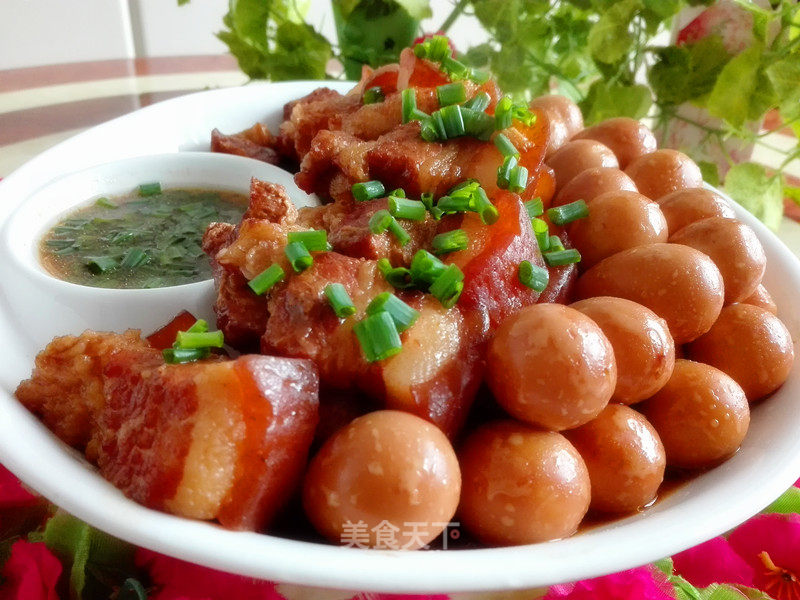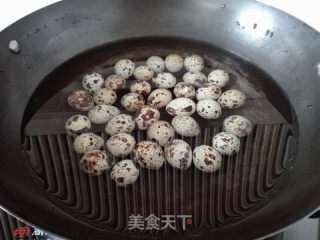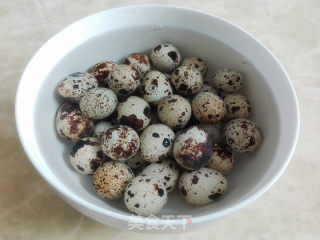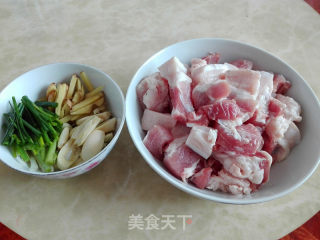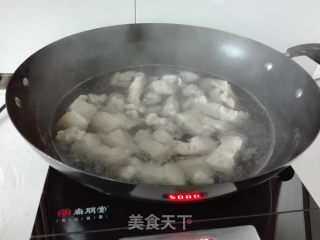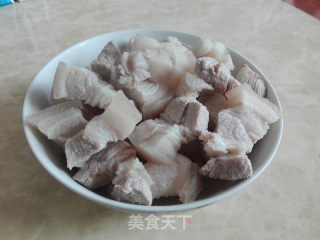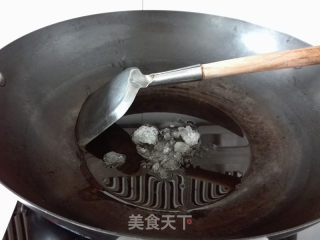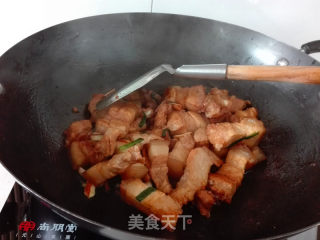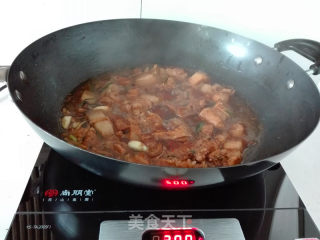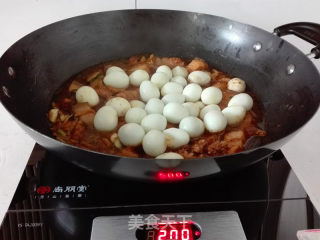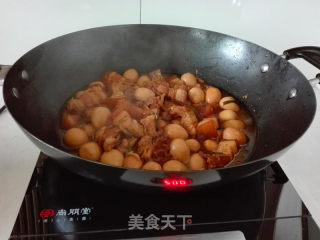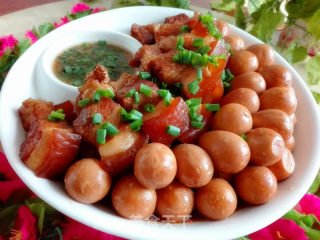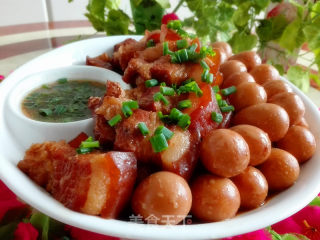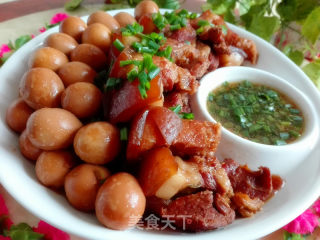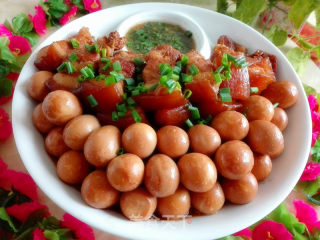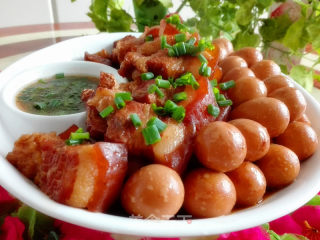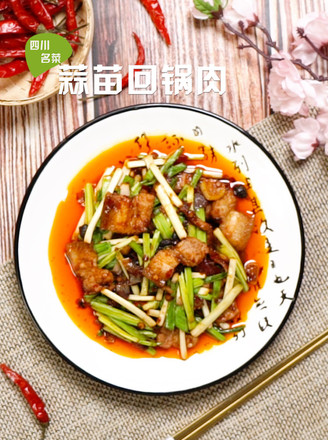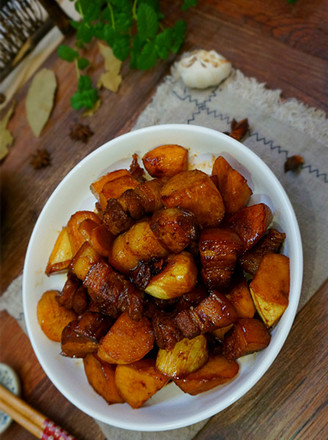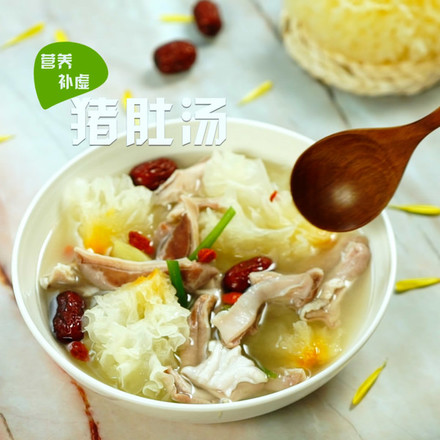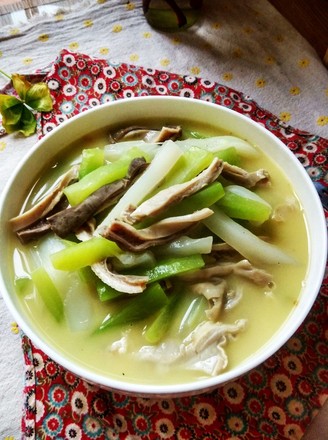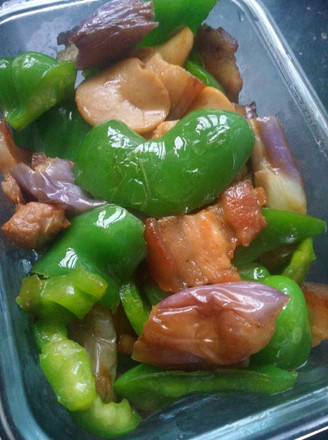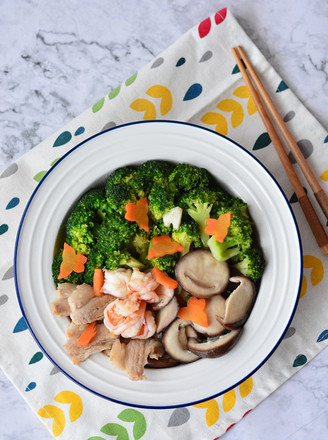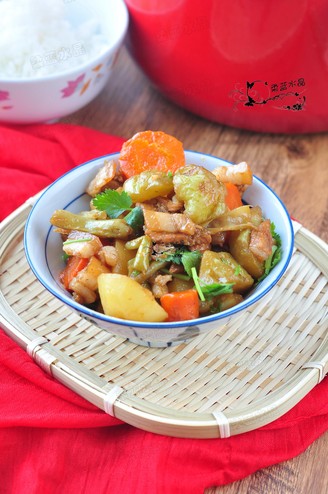Braised Pork with Quail Eggs
1.
Put the quail eggs into a pot with cold water, boil them on medium heat until the water boils, and cook for 3 minutes to remove.
2.
Put the quail eggs in a bowl of cold water and let them cool. Take out the shells, so that they can be peeled more easily.
3.
Cut the pork belly into 2cm cubes. Wash the ginger, green onion and garlic and cut into sections.
4.
Pour appropriate amount of water into the pot, boil, add pork belly and cook until the flesh turns white and the froth overflows.
5.
Remove, drain the water, and set aside.
6.
Pour a little cooking oil into the pot, turn on a low heat to 50% heat, add rock sugar, fry the sugar color, fry until the rock sugar melts into a liquid, the color is close to brownish red, and bubbles come out. After that, it became bitter. Stir-fried sugar color is the key to the coloring of this dish.
7.
Turn off the heat (the oil temperature is too high to avoid oil stars splashing), pour in pork belly, ginger, green onion, garlic, and stir fry quickly, so that the sugar color is evenly coated on the meat.
8.
Pour in water without any ingredients, add light soy sauce, fermented bean curd, oyster sauce, soy sauce, cooking wine, stir fry evenly, turn to a medium-high heat and simmer for about 20 minutes.
9.
Add the quail eggs, stir well, and simmer for about 40 minutes.
10.
Cook until the ingredients are colored (the color becomes darker), turn to high heat to collect the juice, and cook until the soup is thick and ready to be out of the pot.
11.
Sprinkle with chopped green onion, OK!
12.
Bright color, attractive to appetite.
13.
Appreciation of the finished picture.
14.
Appreciation of the finished picture.
15.
Appreciation of the finished picture.
Tips:
1. When frying sugar, the ratio of sugar to oil is 1:1. The color of sugar fried with rock sugar is extraordinarily bright and the gloss is the best. It should be fried with low fire, especially in the final stage. The fire is too big and it will burn. When the color is close to brown-red, turn off the heat, otherwise it will pass and it will become bitter.
2. All kinds of sauces already contain salt. If additional salt is needed, consider as appropriate.

